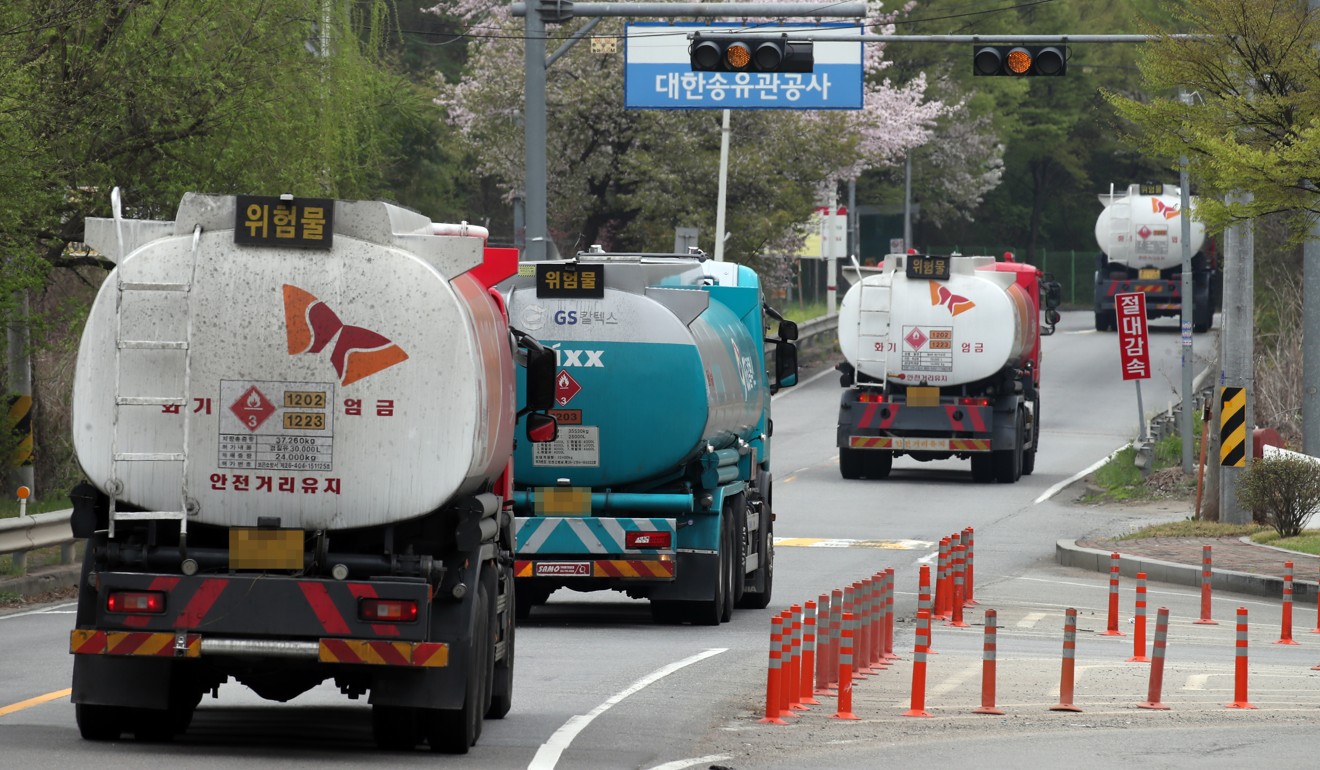
South Korea’s economic slump a bad sign for Asian economies dependent on exports to China
- A weakened Korean won failed to stimulate its exports, meaning China’s recent growth is not in the sectors that need them, and that’s bad for Beijing’s other trading partners

South Korea’s economy shrank in the first quarter of 2019. That is a headache for policymakers in Seoul, but it might also have a wider significance. While Hong Kong itself might be sheltered to some degree, there may be troubled times ahead for other open economies in Asia whose fortunes are closely tied to China.
US dollar strength, coupled with an elevated oil price, will only make matters worse.
Markets were surprised by data released last Thursday that showed the South Korean economy had shrunk a seasonally adjusted 0.3 per cent in the first three months of this year in comparison with the final quarter of 2018. That was its largest contraction since late 2008, during the global financial crisis.
The median forecast among economists polled by Reuters had been for an expansion of 0.3 per cent and, tellingly, not one of the respondents had expected the South Korean economy to shrink.

With exports a key driver of South Korea’s economy, it would be rational to expect some negative knock-on impact due to the China-US trade war. Indeed, South Korean exports dropped by 2.6 per cent in the first quarter following a 1.5 per cent fall in the last quarter of 2018. A fall in South Korea’s shipments to China, its biggest trading partner, has been a key factor.
Capital investment in the first quarter plummeted by 10.8 per cent, the worst reading since 1998.
All this has occurred even though 2019 has seen the Korean won weakened versus the Chinese yuan, a move that would have made South Korea’s products cheaper in renminbi terms for China’s importers. It has also occurred during a period when China’s economy has shown some signs of picking up.
Perhaps the goods that South Korea sells are currently not what China needs quite so much of. If so, the move in the yuan/won exchange rate is somewhat academic.
On April 22, days before the release of the South Korean data, Stephen Li Jen, of London-based Eurizon SLJ Capital, noted that “Despite the green shoots in China, data out of South Korea, Japan, and Europe remains sluggish, especially the trade and manufacturing data”. The still-weak Chinese import data, Jen argued, suggests “that the engines of growth in China in the first quarter were not manufacturing but other sectors, such as properties and infrastructure spending, which may not have as big a positive spillover effect on the other economies in China’s ecosystem as before”.

That theory would certainly help explain why South Korea, whose economy is so exposed to China, contracted in the first quarter of this year even as Chinese economic data ticked up. But it likely also spells trouble for open economies in Asia that have exports to China at the core of their own economic strategies.
With China’s policymakers now seemingly more inclined, given improved Chinese economic data in the first quarter, to eschew stimulus and refocus on structural reform, South Korea and other open economies in Asia may find that China’s appetite for their goods continues to be somewhat subdued. Additionally, as any eventual China-US trade deal will incorporate Chinese commitments to buy more US manufactured goods, other countries exporting to China may find that their own market shares are more lastingly eroded.
Many of those same open economies in Asia, most of which are dependent on US dollar-denominated energy imports to power their manufacturing base, will also encounter problems arising from the combination of a stronger US dollar and a higher oil price.
US attempts to curtail further Iranian oil exports have only added to already-existing upward pressures on oil prices but energy importers, whose currencies have weakened in the face of broad US dollar strength, are doubly affected. For example, a sliding won only makes a barrel of oil, whose US dollar price has already risen appreciably this year, even more expensive in Korean won terms.
Of course, the pegging of the Hong Kong dollar to around HK$7.80 to its US counterpart means Hong Kong is less vulnerable to this issue than other jurisdictions. Equally, if China itself keeps the yuan stable versus the US dollar, that will help limit any consequences to the Chinese economy arising from the effects of a simultaneously strong oil price and a strengthening US dollar.
More broadly, though, there is a real risk that Seoul’s present economic problems are an early indicator of wider frailty in Asian economies that have arguably become overdependent on China as an export market and are also confronting the challenges caused by higher imported energy costs.
Investors shouldn’t consider South Korea’s current economic woes as just a problem for Seoul.
Neal Kimberley is a commentator on macroeconomics and financial markets